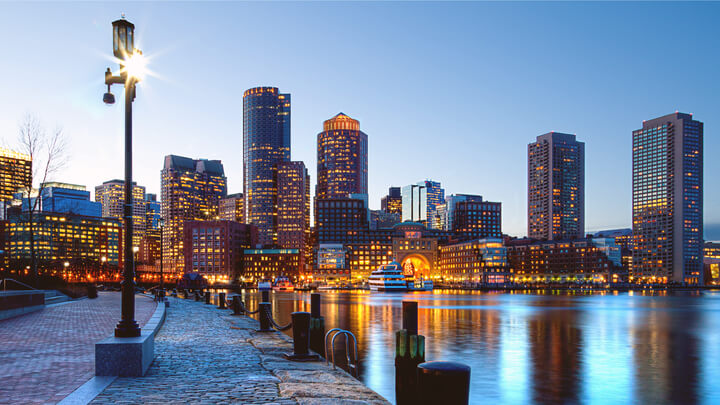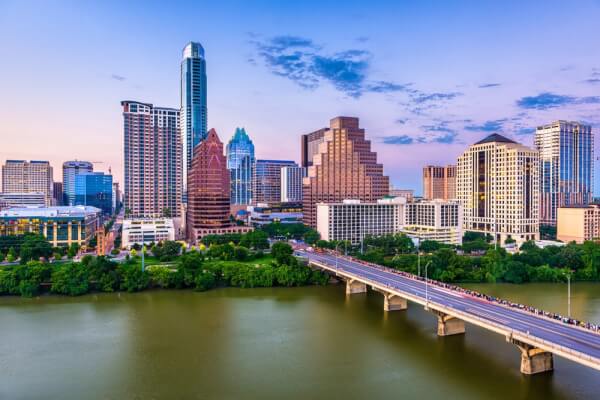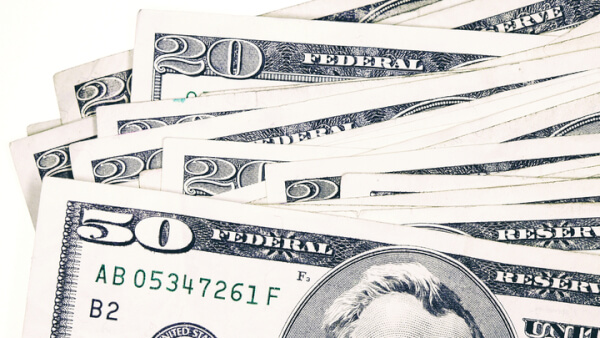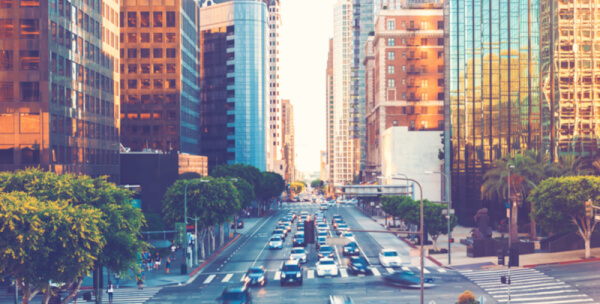Can you use Monzo in the US (America)?
Can you use Monzo in America? Find out in our handy guide to using the digital bank in the US, including fees.

Boston is one of the oldest cities in the U.S. It’s home to the renown university, Harvard, which has produced four American Presidents, Bill Gates, Mark Zuckerberg and Matt Damon. With the Freedom Trail winding its way through downtown historic sites and the legendary Fenway Park, there are plenty of attractions to explore. If you’re heading to Boston from somewhere outside the US, you’ll be needing some USD to get by. This guide will help you to find the best places in Boston to exchange your currency.
Take the time to understand how exchange rates work. There’s only one real rate which is known as the mid-market exchange rate. Unfortunately, this isn’t the rate you’ll see advertised at exchange bureaus. They’ll apply their own markup to the rate - something to watch out for even if they claim ‘zero commission’. Compare the rates offered against the real mid-market rate, taking into consideration any other fees charged by the service. You can check the live rate using our online currency converter.
Exchange rates are variable. Many factors can affect them, such as economic decisions or external events. When a country's currency changes in value, the amount of money you’ll receive from your home currency will vary. Keeping updated on global and local events around the time of your visit may help you choose the best days to convert your money.
It’s worth checking with your bank if they have any partnerships with banks operating in Boston. If they do, you may be able to avoid certain fees by withdrawing from the ATMs of the partner bank. Usually the exchange rates applied at an ATM are better than those advertised at in-person exchange offices. As you’ll usually be charged a fee per ATM transaction, try to limit these to one or two larger withdrawals instead of many smaller ones.
Always choose to be charged in the local currency
When using an ATM, always choose to be charged in the local currency. Having the transaction charged in your home currency isn't advisable because the ATM’s bank will apply the conversion rate. You’ll not be informed what this rate is, but it’s usually a less favourable one, and they’ll charge an extra fee for this service. For a better exchange rate, choose instead to be charged in USD.
Avoid exchanging money at airports and hotels. The exchange rates are usually poor and the fees high, even if they say there’s no commission. This option should be for emergencies only. Change what you need at the airport or hotel, and then seek a more centrally located exchange booth to convert the rest. Or, avoid exchange bureaus altogether, and withdraw cash directly from an ATM.
Re-exchanging your currency when you get home costs money too. So the simplest and cheapest solution is to budget well and make sure you don’t bring any cash home, especially coins. Your currency in Boston is best used up on the city’s many attractions and eateries, or in the duty-free shops at the airport.
With an understanding of how exchange rates work, you’re now prepared for sifting out the good from the bad currency exchange options. If you choose to change your cash at an in-person bureau, the options listed below may be helpful. Be aware that these places will charge you fees, either upfront or hidden in the exchange rate offered. Compare the offered rates to the mid-market rate using a currency converter.
| Currency Bureau | Address | Contact Information |
|---|---|---|
| Travelex Currency Services | 745 Boylston Street, Boston, MA 02116 | + 1 617 266-7560 |
| Currency Exchange International | Copley Place, 100 Huntington Avenue, Boston, MA 02116 | +1 617-266-3300 |
| Altour | 155 Federal St, Boston, MA 02110 | +1 617-439-4400 |
| Bank of America | 100 Federal St, Boston, MA 02110 | +1 617-434-3412 |
Luckily, you’ll not need a Harvard degree to comprehend the currency exchange options available to you. If using an exchange office, be mindful of how far their offered rate deviates from the mid-market rate. You’re likely to get a fairer exchange rate by withdrawing cash directly from a trusted ATM operator. Try to find ATM’s that allow you to withdraw cash for free or have a low withdrawal fee. Choose to be charged in USD, and don’t fall into the trap of allowing the ATM to perform the conversion for you.
Better yet, if either you or a friend have access to a USD bank account in Boston, use Wise and make the transfer ahead of time. Not only does Wise use the real mid-market exchange rate to convert your money (which almost always beat the banks), but since your currency is received and sent via local banking systems in both your home country and in the U.S., all those nasty international bank fees magically disappear.
*Please see terms of use and product availability for your region or visit Wise fees and pricing for the most up to date pricing and fee information.
This publication is provided for general information purposes and does not constitute legal, tax or other professional advice from Wise Payments Limited or its subsidiaries and its affiliates, and it is not intended as a substitute for obtaining advice from a financial advisor or any other professional.
We make no representations, warranties or guarantees, whether expressed or implied, that the content in the publication is accurate, complete or up to date.

Can you use Monzo in America? Find out in our handy guide to using the digital bank in the US, including fees.

Can I use Revolut in the USA? A handy guide to using a Revolut card to spend in US dollars, including fees and exchange rates.

A handy guide on how to buy a US sim card, including major mobile network operators and prices for prepaid plans.

Most countries have checks in place to control the amount of cash that travellers can bring in, and take out. The USA is no different, and has a legal...

This guide will explain American currency, where to get money, and how to spend it in the US. Read on to make sure you have the essential facts about money in...

Americans love ATMs; and they have loads of them - 173 per 100,000 adults at the last count. They’re a common sight even in places where you wouldn’t expect...